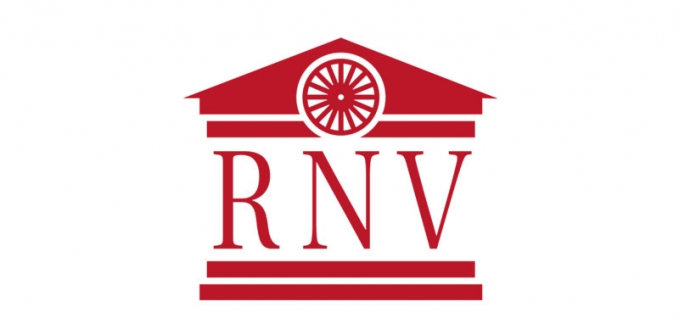
U više od devedeset zemalja svijeta, druga nedjelja svibnja slavi se kao Majčin dan. Ove godine, 10. svibnja, milijuni ljudi širom svijeta odaće počast majčinstvu i utjecaju koji majke imaju u obitelji i društvu. Međutim, posljednjih godina ovaj dan je sve više komercijaliziran. Anna Jarvis, inicijatorica modernog Majčinog dana, izrazila je žaljenje zbog ove tendencije. U romskoj kao i mnogim drugim zajednica majka je središnja osoba većine obitelji i Majčin dan je još jedna prilika da uzvratimo ljubav našim majkama.
Prijevod: Milica Kuzmanović
Jarvis je godinama vodila kampanju u Sjedinjenim Američkim Državama kako bi bio proglašen dan posvećen zanemarenom žrtvovanju koje podnose majke. Predsjednik SAD Woodrow Wilson proglasio je nacionalni dan majki 1914. godine, i pozvao Amerikance da izraze “ljubav i poštovanje prema majkama naše zemlje“. Međutim, samo nekoliko godina bilo je potrebno da komercijalni sadržaji zasjene osnovnu ideju. Sve do svoje smrti, 1948. godine, Jarvis je ulagala puno truda kako bi sačuvala svoju osnovnu ideju za Majčin dan.
Izvorna ideja Majčinog dana imala je drugačije značenje. Jarvisina majka, Anna Reeves Jarvis, osmislila je koncept 1858. godine, usmjeravajući različite Radne klubove za majčin dan, na organiziranje osposobljavanja roditelja, prevencije bolesti i poboljšanje higijene. Kasnije su klubovi pomagali snagama Unije u američkom građanskom ratu pomažući ranjenicima i bolesnim vojnicima, a kasnije su nastavili pomagati veteranima.
Pjesnikinja Julia Ward Howe preuzela je vodeću ulogu u ovoj inicijativi 1870. godine. Te godine, ona je objavila svoj „Proglas za Majčin dan“, odnosno „Apel ženama širom sveta“, pozivajući „sve žene koje imaju srca“ da proglase kako njihovi “muževi neće dolaziti k nama, zaudarajući na krvoproliće za karijere i aplauze, a sinovi nam neće biti oduzimani da zaborave sve ono što smo mogle da ih naučimo o humanosti, milosti i strpljenju”. Howe je očito imala internacionalističku viziju i predvidjela je Majčin dan kao dio svjetskog mirovnog pokreta.
Howe je tvrdila kako ćemo „mi, žene jedne zemlje, biti brižne prema ženama iz drugih zemalja, te nećemo dopustile da naši sinovi budu obučeni da ozlijede njihovih sinova“, i pozvala na uspostavu „općeg kongresa žena bez ograničenja nacionalnosti“, kako bi se „promicao savez različitih nacionalnosti, sporazumno rješavanje međunarodnih pitanja i veliki i opći interesi mira."
Vrlo malo ovog etosa ostalo je u današnjem potrošačkom, profitabilnom festivalu čestitki i komercijalnom kiču. Izvorni društveni i politički angažman Majčinog dana je prigušen. Ipak, majke širom svijeta još uvijek trpe društvene i političke nepravde. Često nedovoljni roditeljski dopust, društveno-ekonomske posljedice trudnoće i majčinstva, kućni rad majki koji mnogi još uvijek smatraju sporednim u odnosu na plaćeni rad muškaraca i slično, samo su neki od mnogih problema s kojima se majke danas suočavaju. Ovi problemi i mnogi drugi ne mogu se riješiti čestitkama ili slatkišima. Njima se mora baviti kao što su to činile Julia Howe i Anna Jarvis.

In more than ninety countries around the world, the second Sunday of May is celebrated as Mother’s Day. On May 10th this year, millions across the globe will honor motherhood and the impact of mothers in family and society. In the recent years, however, this day has been increasingly commercialized. Anna Jarvis, the initiator of the modern Mother’s Day, herself expressed regret regarding this tendency. In the Roma community as well as in many other communities, the mother is the central person of most families and Mother's Day is another opportunity to give back the love to our mothers.
Jarvis campaigned for years in the United States for a day celebrating the neglected sacrifices of mothers. President Woodrow Wilson established a national Mother’s Day in 1914 and called for Americans to express “our love and reverence for the mothers of our country”. It took just several years, however, for the holiday to be co-opted by the market. Until the she passed away in 1948, Jarvis put a lot of effort into fighting the commercial corruption of her beloved day.
The original idea of Mother’s Day had very different meaning. It was Jarvis’s mother, Anna Reeves Jarvis, who coined the concept in 1858, initiating various Mother’s Day Work Clubs to organize parental education, disease prevention, and sanitation improvements. The clubs later assisted the Union forces in the American Civil War by helping the wounded and the sick soldiers and later continued to help the veterans.
In 1870, the poet Julia Ward Howe took the baton of the initiative. That year, she published her “Mother’s Day Proclamation,” or “An Appeal to Women Around the World,” calling on “all women who have hearts” to proclaim their “husbands shall not come to us, reeking with carnage, for caresses and applause” and their “sons shall not be taken from us to unlearn all that we have been able to teach them of charity, mercy and patience.” Howe clearly had an internationalist vision and envisaged Mother’s Day as part of a worldwide peace movement.
Howe asserted that “we women of one country will be too tender of those of another country to allow our sons to be trained to injure theirs,” and called for the establishment of a “general congress of women without limit of nationality” to “promote the alliance of the different nationalities, the amicable settlement of international questions [and] the great and general interests of peace.”
Very little of this ethos remains in today’s consumerist, profit-driven festival of greeting cards and commercial kitsch. The original social and political engagement of Mother’s Day is silenced. Yet, mothers around the world still suffer from indeed social and political injustices. The often-insufficient parental leave, the socio-economic implications of pregnancy and motherhood, the domestic labor of mothers which is still seen by many as secondary to paid work of men, etc. are just a few among the many issues mothers face today. These problems and many others cannot be addressed with greeting cards or candy. They have to be addressed as Julia Howe and Anna Jarvis did, politically.